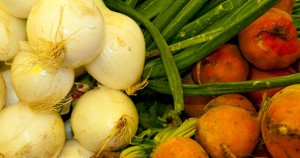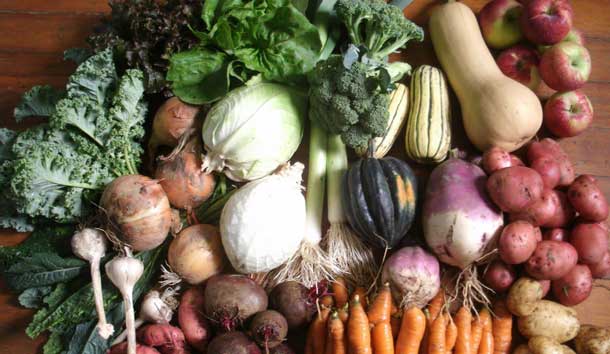 NORTH CARIBOU LAKE – Food prices in Far Northern Ontario communities take up a majority of the average resident’s budget. The cost of shipping adds up with simple staples like flour and potatoes costing up to five or six times what they would in Thunder Bay or Toronto.
NORTH CARIBOU LAKE – Food prices in Far Northern Ontario communities take up a majority of the average resident’s budget. The cost of shipping adds up with simple staples like flour and potatoes costing up to five or six times what they would in Thunder Bay or Toronto.
Shipping food north, especially fresh produce has been, under the model currently used, taken far longer than it should, and that in effect reduces the store shelf life once it arrives. In many cases that means fresh food can cost far more than people can afford.
For many, that leaves either canned vegetables with high salt content, or frozen fruits and vegetables. The cost of energy in the north, for communities powered by diesel generators is very high. Diesel fuel and gasoline in the north can run at prices over triple that in the south.
Working to make positive change, NAN Deputy Grand Chief Derek Fox, has been travelling the north extensively, criss-crossing the region.
Fox was recently in North Caribou Lake.
The Hunters’ Festival wrapped up in North Caribou Lake First Nation last Sunday with seven moose, 40 partridges, one beaver, one swan and a boat load of pickerel and ducks. The festival has been running for 26 years with this year being the first year to have fresh vegetables to add to land based traditional foods.
“The project in North Caribou Lake First Nation demonstrates how a small amount of funding can have major impacts on community food self-determination. Projects like this need to be developed and supported across NAN territory,” said Deputy Grand Chief Derek Fox. “The Nutrition North Canada food subsidy program and other government initiatives need to support these on the ground community driven initiatives and work with us to find innovative alternatives to the current food subsidy. There needs to be a shift away from profit-driven models currently in place.”
A recent posting on Social Media showed a picture where a $30 food bill received a Nutrition North Subsidy of $0.04. The program designed by the former government likely was put together with good intentions, but for people in the north the benefits are often not really seen.
With funding from NAN, North Caribou Lake was able to develop their first community garden and the first harvest of vegetables was shared and prepared in moose stew eaten during the festival.
“There are too many negative stories about Native people in the media and this garden is a good news story,” said North Caribou Lake First Nation Chief Dinah Kanate.
A small bag of baby carrots sells for $8 in North Caribou Lake First Nation and they are no longer fresh once they arrive into the fly-in community.
“I stopped eating fresh vegetables because it became too expensive to buy them at the store,” said community member John Kanate.
The garden began as part of the aftercare program for the patients at New Horizons Treatment Center. The aftercare program is community-based and governed by the Prescription Drug Abuse treatment program. There are similar programs in 15 other communities in Northwestern Ontario.
“An important part of our work is helping our clients get their life skills back and gardening is a wonderful tool to do so. Next year I hope we plant a potato garden like my grandfather used to have,” said Edna Queqish, coordinator of New Horizons Treatment Center.
North Caribou Lake invited Steven Vassallo, a gardener from Markdale, Ontario to help facilitate the garden project. He arranged for the gardening supplies to be shipped over the ice in the winter and tilled the bog by the band office in the spring.
“There are some soil challenges here but the suitability of the bog peat has been improved with a little fish compost and minerals creating a great base for a wide range of vegetables.”
Released by Food Secure Canada on September 12, 2016, Paying for Nutrition: A Report on Food Costing in the North, documents ‘alarming high food prices’ despite the fact that First Nations are serviced by the federal government’s Nutrition North Canada food subsidy program.
NAN has a seven pillar strategy for reclaiming their right to food self-determination: 1. Community and People, 2. Traditional Practises, 3. Imported Foods, 4. Local Production, 5. Nutrition Practice, 6. Planning, 7. Policy and Advocacy, 7. Research and Knowledge Transfer.
NAN launched the Kiitigaan Aski website (www.kiitigaanaskihub.ca) as interactive online resource to promote nutrition and food self-determination in NAN First Nations. Derived from the OjiCree language meaning “a land where foods/things grow from”, the website allows communities to share information and exchange ideas on how to harvest their own supplies of food and is a valuable resource for re-gaining food self-determination.






